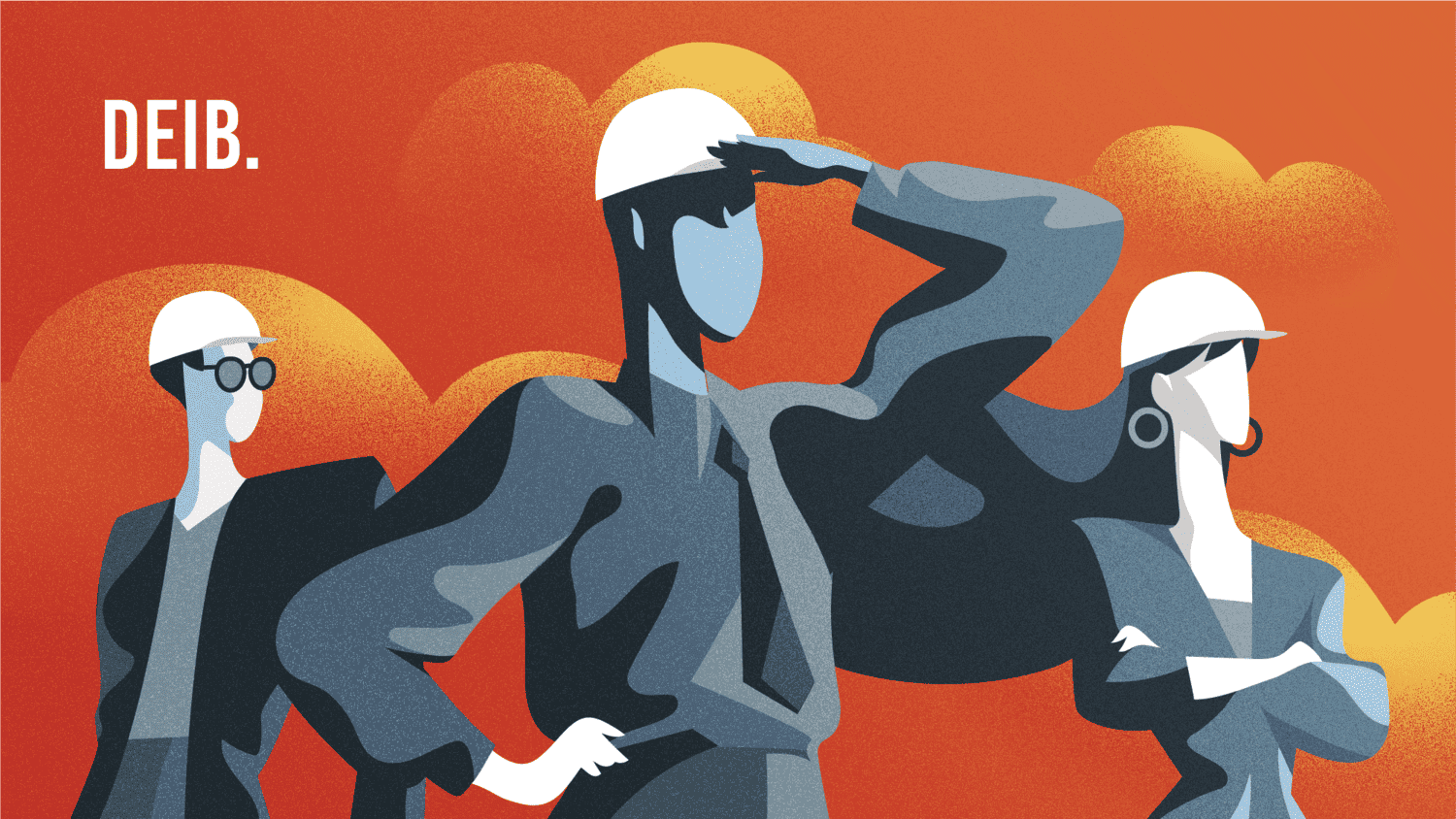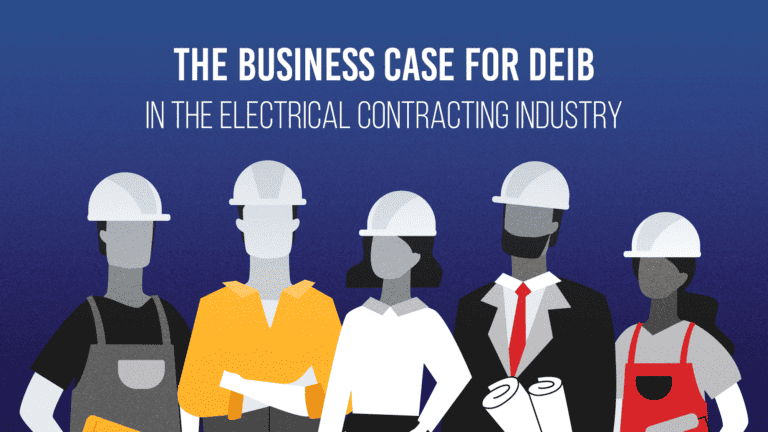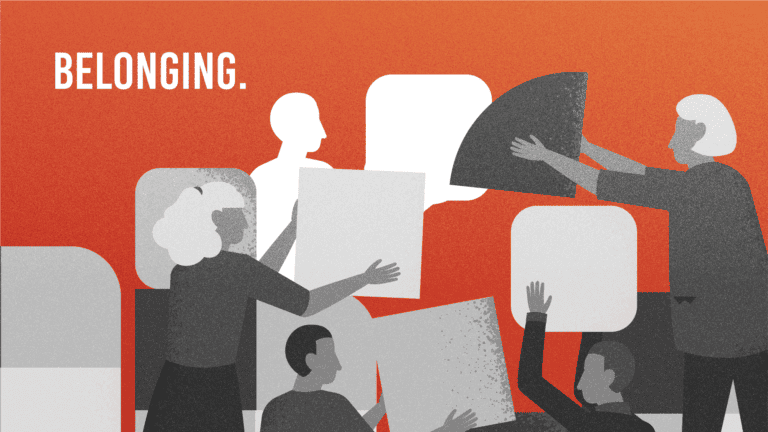A shift in today’s workplace setting is the need to cultivate a culture of diversity, equity, inclusion, and belonging. Businesses, both small and established, are actively promoting equitable and inclusive workplaces where employees from diverse backgrounds feel recognized.
Companies that employ people from different backgrounds gain an advantageous position as they can have a diverse perspective on the way they operate. Workers in the electrical industry, for instance, are predominantly white male electricians. Electrical contractors that recruit from other racial or gender profiles gain better insights into how to provide services to their local communities – making them a valuable asset in the process.
But first, let’s explore more about the facets of diversity, equity, inclusion, and belonging. How do we embrace a more inclusive workplace? Is it beneficial for a business, especially in the trade sector, to nurture this culture?
What Is DEIB?
Commonly abbreviated as DEIB, the terms diversity, equity, inclusion, and belonging have different meanings. They may be interchangeably used in conversations. However, each refers to very specific concepts. Here are the differences between these four terms:
Diversity – Diversity is all about what makes us different in terms of our race, ethnicity, gender, sexual orientation, age, disability, religion, socioeconomic status, and more. Communities and workplace organizations have to value and respect diversity by fostering a sense of belonging and celebrating what makes us different.
Equity – Equality is the principle of being fair with one another and implementing justice. It is about providing people with equal opportunities, resources, and support while considering their disadvantages or advantages as an individual. Equity is about addressing and correcting existing inequalities, promoting equal opportunities, and striving for equal outcomes for all.
Inclusion – Inclusion promotes an environment in which all individuals feel valued, respected, and supported. This includes actively seeking out ideas and making people from diverse backgrounds participate in decision-making processes. It is not merely representing a certain race, age, or other background. Rather, it’s about making everyone participate, contribute, and thrive within an organization or a workplace.
Belonging – Belonging is how individuals feel accepted, valued, and included within a particular group or community. Individuals can show their true selves without the fear of judgment. Instead, they are celebrated for being true to themselves, knowing that they’re in a safe environment. Companies that have a belonging culture allow individuals to have a genuine acceptance of their identity, perspectives, and experiences.
How Diverse Is the Minneapolis and Rochester Population?
A 2022 population estimate from Census.gov, shows the diversity of the 425,096 inhabitants in the Minneapolis area. 63.1% are White or Caucasian . Meanwhile, Blacks or African Americans comprise 18.4%. Around 5.8% are Asians, and 9.8% are Hispanic or Latinos.
Meanwhile, Rochester City’s 121,878 inhabitants are also people from diverse racial origins. Whites comprise 77.7%, and Black or African Americans constitute 9.1% of the total population. 7.2% of the city’s population are Asians, and 5.8% have Hispanic or Latino descent. These diverse statistics help portray the need for inclusive workplace environments.
Why Is DEIB Important?
1. Helps Keep Talent
It fosters a motivating working environment in which colleagues coming from different backgrounds work together on projects and contribute ideas. A company that hires people regardless of their race, age, gender, and other socioeconomic factors is more attractive to skilled people looking for a job. They are more likely to stay in the company due to its welcoming culture.
2. Improves the Quality of Decision Making
There is a better chance of making valuable decisions when you consider various perspectives. It helps increase awareness of unconscious bias, which could cloud judgment. Getting input from people coming from different backgrounds or profiles means that your organization can avoid blind spots in their decision making processes.
3. Increases Customer Insight and Innovation
Having a diverse team produces more creative ideas. Which helps to find ways to innovate how you provide services to your customers. Some of the worker’s experiences may be specific to their race, customs, or values. They may apply their unique perspective toward specific customer demographics, allowing you to expand your base and innovate the business.
4. Drives Employee Motivation and Satisfaction
A more inclusive company culture attracts talented people to work for them. They are motivated to work knowing that they are valued, respected, and recognized for their efforts despite any differences with their colleagues. The value-based environment drives employees to be better at their jobs.
5. Improves a Company’s Global Image
There’s a positive public perception towards companies that employ and welcome people from diverse origins. Customers can see right away the kind of culture that your business is cultivating. It paints an image to the customers that you’re a welcoming company that doesn’t discriminate when hiring people coming from different backgrounds. Also, it helps in their license to operate due to the legal requirements of the racial diversity quota for businesses
Diversity and Preventing Workplace Harassment
In a diverse workplace setting, workplace harassment can happen. This is a typical scenario in a workplace where one gender/group is predominantly larger than other(s), leading to harassment from the majority. In the trades, for instance, men outnumber women in the workplace. Without a proper culture or policies in place, unsolicited remarks and actions can come from the opposite gender.
Another would be bullying, targeted mainly towards a minority or staff coming from a marginalized sector. Workers may intimidate coworkers for personal reasons. Which can lead to a toxic work culture and discrimination, if you don’t take any action or implement policies regarding this behavior.
Preventing harassment, bullying, and other forms of intimidation can be done. All it takes is to educate the workers about the value of diversity, equity, inclusion, and belonging. They must learn to accept and treat everyone respectfully, regardless of their differences. One of the effective ways to combat discrimination in the workplace can be through training programs. This will complement a diverse workplace with people coming from different beliefs, ideas, and work ethics.
DEIB Training Ideas You Can Implement
There are several programs you can organize for workers to embrace diversity, equity, inclusion, and belonging in the workplace. Some of these can be Cultural Competency Training to build a better understanding of each one’s cultural differences, communication styles, customs, or values. It’s also possible to have a more respectful workplace by conducting Anti-Discrimination and Harassment Training. Having Intersectionality Training can also be good to explore the dimensions of race, gender, sexuality, and ability of individuals with marginalized identities.
You can refer to community organizations and local business chapters that tackle diversity, equity, inclusion, and belonging. They can provide resources, such as program curriculum, or have a key person provide the training. This way, it will be easier for you to implement a workplace culture where everyone, regardless of their perceived background, can work towards embracing a more inclusive working environment.
Conducting any of these training can contribute to a better understanding of how valuable diversity, equity, inclusion, and belonging are inside a workplace setting. Workers will have a better idea of how to be more accepting of each other’s differences. Aside from that, it will also help them to make actions geared towards embracing a diverse and inclusive culture.
Diversity, equity, inclusion, and belonging are not just mere concepts. They are actionable items in pursuit of providing a better working environment for one another. In the electrical sector, for instance, having people from different backgrounds work on a project increases the creativity and motivation of coworkers. It results in less harassment and enhanced cooperation, improving the way you do business.





